Contributors
Dr. Amir Ali
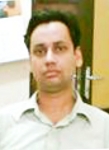
Amir Ali is Assistant Professor at the Centre for Political Studies at the Jawaharlal Nehru University, New Delhi. His research areas include political theory, multiculturalism and group rights. Among his publications are 'Terrorism and Genocide: Making sense of senselessness', Economic and Political Weekly, 36, 6 (2004), and' The Hindutva Gameplan to Checkmate Muslims' in Mushirul Hasan (ed.) Living With Secularism: The Destiny of Indian Muslims. (2006).
Prof. Dr. Ravi Ahuja
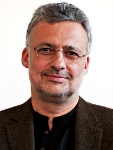
Ravi Ahuja has been professor for modern Indian history and head of the research group for modern Indian history at the Centre for Modern Indian Studies (CeMIS) of the Georg-August-University Göttingen since 2009. Especially the different periods and problems of India’s social history from the 18th to the 20th century are his focus of research. At the University of Hannover he wrote his second book on the social history of the colonial transportation infrastructure of the Indian region Orissa: Pathways of Empire. Circulation, 'Public Works' and Social Space in Colonial Orissa (c. 1780-1914) (2009). He lectured at the South Asia Institute in Heidelberg and had a professorship for Modern South Asian History at the School of Oriental and African Studies in London.
Ravi Ahuja is co- editor of Mumbai – Delhi – Kolkata. Annäherungen an die Megastädte Indiens (2006), and When the War Began, We Heard of Several Kings. South Asian Prisoners in World War I Germany. (2011).
Prof. Dr. Anil Bhatti
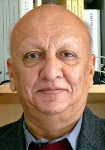
Anil Bhatti joined the Centre of German Studies at the Jawaharlal Nehru University (JNU), New Delhi, in 1971 and was Professor from 1983 until 2009. He was visiting professor in Göttingen, Graz, Wien and Tübingen and is president of the Goethe Society of India.
His main areas of interest are on the theory of literature and culture, Modern German Literature (19th and 20th century); Comparative Literature and Comparative Culture Studies between the German speaking countries of Europe and India.
2001 he received the Jacob and Wilhelm Grimm Prize of the DAAD, 2005 he was recipient of the Officer’s Cross of the Order of Merit of the Federal Republic of Germany and 2011 he received the research prize of the Alexander von Humboldt Foundation. In January 2012 he received the Austrian Honor Cross for Science and Art 1st class.
On the topic of similarities, he published
- 'Heterogenität, Homogenität, Ähnlichkeit'. In: Allerkamp, A.; Raulet, G.: Kulturwissenschaften in Europa – eine grenzüberschreitende Disziplin? (2010) and
- 'Ähnlichkeit. Ein kulturtheoretisches Paradigma'. Internationales Archiv für Sozialgeschichte der deutschen Literatur 36, 1 (2011), with D. Kimmich, A. Koschorke, R. Schlögl und J. Wertheimer.
He is the inaugurator of the research initiative on Similarity / Ähnlichkeit, as it has evolved in cooperation with the German Studies in Tübingen and the Cluster of Excellence at Konstanz University.
Dr. Johannes Feichtinger

Das Ähnliche und das Differente. Zentraleuropa und seine Identitätswissenschaften als Paradigma
Johannes Feichtinger has been a research fellow at the Institute for cultural studies and theatre at the Austrian Academy of Sciences (ÖAW) since 2004. From 1999 to 2000 he was visiting professor at the University of Arkansas at Little Rock and lectured at the University of Graz from 2001 to 2004. Since 2010 he is lecturer at the University of Vienna for modern and recent history.
His main research interests cover the history of science as cultural and political history, the history of the Habsburg monarchy as well as the cultural studies of memory and identity.
Johannes Feichtinger is co-editor of the annual Moderne and author of Wissenschaft als reflexives Projekt. Von Bolzano über Freud zu Kelsen: Österreichische Wissenschaftsgeschichte 1848-1989 (2010).
Prof. Dr. Rüdiger Görner
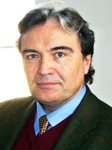
Rüdiger Görner is Head of the School of Languages, Linguistics and Film of the Queen Mary University of London and founding director of the Centre for Anglo-German Cultural Relations. From 1997 to 2004 he held a Professorship for German Literature at Aston University, Birmingham and was director of the Institute of Germanic Studies.
As author and literary critic he writes for some of the leading dailies and weeklies in Germany, Austria and Switzerland, including Die Zeit, Frankfurter Allgemeine Zeitung, Tagesspiegel, Die Presse and Neue Zürcher Zeitung. His research focus is on representations of science and music in the German language literatures (from the late 18th century until now), poetic theory at the turn of the centuries, the literary aesthetics of repetition and the conception of pluralectics in German (Late) Romanticism.
Rüdiger Görner is a member of the European research group 'Borders and Boundaries in Literary Discourses since 1800' and a founding member of the Klassik Kolleg in Weimar.
Monographies: Thomas Mann. Der Zauber des letzten Artemis (2005), Schillers Apfel. Szenen, Gedanken und Bilder (2009).
Prof. Dr. Dorothee Kimmich
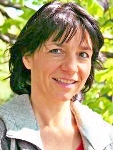
Dorothee Kimmich is professor for modern German Literature at the University of Tübingen. She is the head of the programme for poets in residence in Tübingen and jointly responsible for the Master degree course "Etudes franco-allemands" in cooperation with the Université de Provence in Aix-en-Provence.
Her areas of interests are literature and philosophy of the 19th and 20th century, theories of media in modern history and theories of cultural studies, as well as the life of objects in the literature and in the cultural history of the modern age.
She heads the research initiative „Dinge, Wissen, Praxis" and is involved in the project "Ähnlichkeit als kulturtheoretisches Paradigma" (Similarities as cultural paradigm) as the co-operation partner from Tübingen, together with Jürgen Wertheimer.
Recent publications: With Ö. Ezli, A. Werbe (ed.) Wider den Kulturenzwang. Migration, Kulturalisierung und Weltliteratur (2009), Lebendige Dinge in der Moderne (2011), and 'Ähnlichkeit. Ein kulturtheoretisches Paradigma'. Internationales Archiv für Sozialgeschichte der deutschen Literatur 36, 1 (2011) with A. Bhatti, A. Koschorke, R. Schlögl und J. Wertheimer.
Prof. Dr. Ulrike Kistner
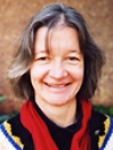
Work of Similarities – Work on Similarities
Ulrike Kistner has been professor at the 'Institute for Classic and World Languages' of the University of South Africa (UNISA) since 2009. Previously, she taught at the University of Witwatersrand (Johannesburg).
Professor Kistner’s research interests encompass theory and history of literature, psycho-analysis and narrative, colonial literature and post-colonial theory, theory of ideology, nations and nationalisms, dialectics of enlightenment, history and paradigms of cultural studies, modernity and its discontents.
She was awarded a Humboldt Scholarship for studies and research in Germany (1995, 2003).
Publications: Politik und Sichtbarkeit in Johannesburg: "Wohlstandsgefängnis" und "Ghettoisierung" unter dem Primat der Sicherheitsfrage. (coeditor, 2009), 'The Exception and the Rule: Fictive, Real, Critical'. Telos 21 (2011)
Prof. Johan Namjun Kim

John N. Kim received his PhD in German Studies from Cornell University and has been Associate Professor for Comparative Literature at the University of California at Riverside since 2011.
He has received many grants and research residences, amongst others by the Hölderlin society (2005), The Institute for Advanced Studies at the Universtiy of Konstanz (2008-2009) and the German Cultural Studies at Cornell University (2009). He is currently working on two book projects: Ethnic Irony: 'Autobographies' of the Living Dead reconfigures received protocols of the discourse on ethnicity. His second project is the preparation of the inaugural German language issue of the book series TRACES: A Multilingual Series of Cultural Theory and Translation, which will collect the outcomes of a conference on “Translating Society” which Kim organised with Andreas Langenohl. Kim's reseach interests include late eighteenth to twentieth century German and French literature and philosophy, Japanese literature and philosophy, gender, digital media and theories of translation.
Among his publications are: The Politics of Culture: Around the Work of Naoki Sakai, co-edited with Richard F. Calichman (2010) and 'Ethnic Irony. The Poetic Parabasis of the Promiscuous Personal Pronoun in Yoko Tawada's 'Eine leere Flasche' (A Vacuous Flask). The German Quarterly 83,3 (2010).
Prof. Dr. Bernhard Kleeberg
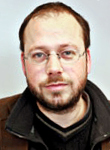
Since October 2007, Bernhard Kleeberg is assistant professor at the department of history of science of humanities and social sciences within the Cluster of Excellence Cultural Foundations of Integration at the University of Konstanz. Before that, he was research coordinator at the International Graduate Centre for the Study of Culture (GCSC) at the University of Gießen. From 2003 to 2006, he worked as a research assistant at the Max-Planck-Institut of history of science (Berlin).
His main research interests are the history of science and culture of humanities and social studies, especially political economics and sociology (18th to 20th century), the historical epistemology as well as the history and theory of science of life sciences, especially biology and anthropology (18th to 20th century).
Publications: 'Vestiges of the Book of Nature. Religious Experience and Hermeneutic Practices in Protestant German Theology, ca. 1900'. In: Uljana Feest (Hg.): Historical Perspectives on Erklären und Verstehen (2009), With Andreas Langenohl: focus issue „Culturalisation“ of the Journal for Cultural Philosophy 2 (2011).
Prof. Dr. Albrecht Koschorke
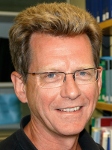
Albrecht Koschorke is professor for German Literature and Comparative Literature at the University of Konstanz since 2001. From 2000 to 2006 he headed of the project “Poetologie der Körperschaften“ at the Center for Literary and Cultural Research in Berlin and is co-author of this project's joint publication Der fiktive Staat (2007). Previously, he taught at the University of Würzburg and at the Freie Universität Berlin (FU).
His main interests of research are the history of German literature from the 17th to the 20th century, anthropology, media and cultural theory, as well as political theory. As one of the principal investigators of the Cluster of Excellence Cultural Foundations of Integration in Konstanz, he has been one of the promoters of the initiative on similarity.
In 2002 he received the award of the Berlin-Brandenburg Academy of Sciences, in 2003 the Gottfried-Wilhelm-Leibniz-prize of the German Research Foundation. His most recent publications are Despoten dichten. Sprachkunst und Gewalt (2011), edited with K. Kaminskij and: ‘Ähnlichkeit. Ein kulturtheoretisches Paradigm‘ with A. Bhatti, D. Kimmich, R. Schlögl, J. Wertheimer in: Internationales Archiv für Sozialgeschichte der deutschen Literatur 36, 1 (2011).
Prof. Dr. Andreas Langenohl
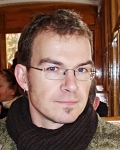
Tracing Scenes Of Voting – A Place for Similarities?
Andreas Langenohl has been professor for Sociology at the Justus Liebig University of Gießen since 2010.
From 2007 to 2010 he was the director of the research group 'Idioms of Social Analysis' at the Center of Excellence Cultural Foundations of Integration, University of Konstanz, and lectured in Ghent, Lucerne, Zurich and at Cornell University (USA). His research areas are processes and theories of modernization, traditionalization and dis-traditionalization, collective memory in the post-Soviet sphere as well as economic sociology and questions of the construction of majority and minority. Together with John N. Kim, he is responsible for the German edition of TRACES: A Multilingual Series of Cultural Theory and Translation on the topic of Translating Society.
Publications: Tradition und Gesellschaftskritik. Eine Rekonstruktion der Modernisierungstheorie (2007), co-editor (with D. Göktürk, T. Kaes and D. Gramling) of Transit Deutschland. Debatten zu Nation und Immigration (2011), with Bernhard Kleeberg: focus issue 'Culturalisation' of the Journal for Cultural Philosophy 2 (2011).
José F. A. Oliver

José F.A. Oliver was born in Hausach in the Black Forest as the son of Andalusian "Gastarbeiter" from Málaga. He lives there today as a writer. His poetry has been translated into several languages. Oliver was poet in residence in Dresden (2001) and Cairo (2004) as well as guest professor at the M.I.T. in Cambridge, USA (2002). He is the recipient of various prestigious prices and awards like the Adelbert-von-Chamisso-Preis (1997). In 2009 the essay collection “Mein andalusisches Schwarzwalddorf“ (“My Andalusian Blackforest Village”) was awarded the Thaddäus-Troll-Preis. The laudatio stated that Oliver “has found a calm, colourful, precise language, that makes his work important and unique.” Oliver is also the founder and organiser of the literature festival Hausacher LeseLenz which looks back on a 15 year history.
Prof. Dr. Peter Pál Pelbart
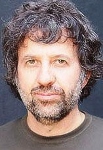
De la folie européenne à l´antropophagie amérindienne : déplacements dans l´image de la pensée
Peter Pàl Pelbart is professor of philosophy at the Catholic University of São Paulo and member of the Centre de recherches sur la Subjectivité. He is the coordinator of the famous Ueinzz Theater Company. He is the translator of works by Gilles Deleuze and Félix Guattari into Portuguese.
His main research has been on the concept of time, biopolitics, subjectivity, madness, community and the work of Guattari, Deleuze, Foucault, Nancy, Blanchot and Agamben.
He has published in Chiméres and Multitudes and his recent books include Vida Capital, (2003) and Filosofia de la Desercion: Niilismo, Locura y Comunidad (2009).
Prof. Dr. Naoki Sakai
The Locale of Comparison and Transnationality: towards Comparative Humanities
Naoki Sakai is professor in the departments of Comparative Literature and Asian Studies at Cornell University. Previously, he was Senior Research Fellow for the Japan Foundation and Assistant Professor in the department of Far Eastern Languages and Civilizations at the University of Chicago.
His research fields are in comparative literature, intellectual history, translation studies, the studies of racism and nationalism, the histories of semiotic and literary multitude.
Naoki Sakai inaugurated the project TRACES: A Multilingual Series of Cultural Theory and Translation, which is simultaneously published in four languages - Korean, Chinese, English, and Japanese (German, Italian, and Spanish were added in 2008) and served as its founding senior editor (from 1996 to 2004). His most relevant publications include: Translation and Subjectivity (1997), TRACES 1: The Spectre of the West (co-edited with Yukiko Hanawa in Japanese, English, Korean and Chinese), TRACES 4: Translation, Biopolitics and Colonial Difference (co-edited with Jon Solomon in Japanese, English, Korean and Chinese).
Prof. Dr. Rudolf Schlögl

Rudolf Schlögl has been professor for Modern History at the University of Konstanz since 1996 and head of the Cluster of Excellence Cultural Foundations of Integration since 2006.
His main research focus are on the political culture of the early modern city, medial conditions of social self-observation and self-definition in the 17th century, as well as the history of communication and media in the history of the social in the Early Modern Age.
Rudolf Schlögl is editor of the series Historische Kulturwissenschaft of the UVK Konstanz and was head of the research centre Norm und Symbol, which was funded by the German Research Foundation (DFG) from 2000 to 2009.
Recent Articles: 'Politik beobachten. Öffentlichkeit und Medien in der frühen Neuzeit'. Zeitschrift für Historische Forschung 25 (2008), 'Hierarchie und Funktion. Zur Transformation der stratifikatorischen Ordnung in der frühen Neuzeit'. Zeitsprünge 15, 1 (2011). He is co-author of 'Ähnlichkeit. Ein kulturtheoretisches Paradigma'. Internationales Archiv für Sozialgeschichte der deutschen Literatur 36, 1 (2011) with A. Bhatti, D. Kimmich, A. Koschorke, und J. Wertheimer. Together with Anil Bhatti, Prof. Dr. Schlögl has advanced the research initiative on Similarities at the Cluster of Excellence at Konstanz University since 2007.
Dr. Johan Strijdom

"Similarity" as critical concept in the comparative study of religions
Johan Strijjdom teaches at the Department of Religious Studies and Arabic at the University of South Africa (UNISA) since 1987 and is on the editorial board of the journal Phronimon (Journal of the South African Association for Greek Philosophy and the Humanities) since 2011.
He has researched myths about beginnings, love, compassion, justice in ancient Greek, early Christian and modern ethics (2003-2009) and together with Ulrike Kistner: “The location of literature in global contexts: Postcolonial perspectives on globalization”.
His current project “Beyond the North-South and West-East divide: On the comparison of cultures” focuses on the problem of indigenism across cultures as well as a comparison of debates on social justice within and across cultures.
In 2008 he published: ‘Paul, the Stoics and human rights’. Phronimon 9 and in 2011: ‘Towards a critique of indigenous African religion’. HTS Teologiese Studies/Theological Studies 67, 1.
Dr. Levent Tezcan

Ähnlichkeit und Welterfahrung – anders als die ‚Einheit in Verschiedenheit‘
Levent Tezcan is Assistant Professor at the Tilburg School of Humanities at the Department of Culture Studies since 2008. From 1995 to 2007 he was a researcher at the Institute for interdisciplinary research of conflicts and violence at the University of Bielefeld, where he received his PhD in Sociology. He was awarded the advancement prize of the North Rhine-Westphalian ministry of science and research within the context of the programme "Geisteswissenschaften gestalten Zukunftsperspektiven!".
His research focuses on intercultural relations and conflicts, religious identity and practices, politics in Turkey, migration studies as well as the Islam and Europe. As fellow of the Institute of Advanced Study Konstanz he worked on 'Muslims as Medium of Culturarization – The German Islam Conference as example', publication: Das muslimische Subjekt: Verfangen im Dialog der Deutschen Islamkonferenz (2012). See also: 'Religion and Control of Violence.' In: Heitmeyer et al. (Hg.) Control of Violence (2010).
Prof. Dr. Jürgen Wertheimer
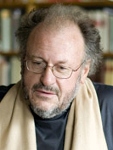
Jürgen Wertheimer has been professor for Modern German Literature and Comparative Literature at the University of Tübingen since 1991.
He wrote his habilitation at the Ludwig-Maximilians-Universität in Munich and then taught amongst others in Metz, Bamberg und Paris. He is editor of various journals, such as arcadia (together with John Neubauer and Vivian Liska) and he is co-editor of the series Stauffenburg Discussion: Studien zur Inter- und Multikultur / Studies in Inter- and Multiculture.
His main research interests are the transfer of culture, translation, studies of difference, poetics of emotions, as well as myths, ideologies, criticism.
Jürgen Wertheimer is founder and coordinator of the project Wertewelten (2008) at the University of Tübingen, together with Prof. Dr. H.-D. Assmann. With Dorothee Kimmich, Wertheimer is the cooperating partner of the initiative on similarity.
Amongst numerous publications he is the author of Die Venus aus dem Eis: Wie vor 40.000 Jahren unsere Kultur entstand. (With Nicholas J. Conard, 2010).
Invited discussants
Aleida Assmann (Constance)
Jan Assmann (Heidelberg/Constance)
Pradeep Chakkarath (Bochum)
Moritz Csáky (Vienna)
Özkan Ezli (Constance)
Nicole Falkenhayner (Freiburg)
Bernd Giesen (Constance)
Shefali Jha (New Delhi)
Susanne Klengel (Berlin)
Indivar Kamtekar (New Delhi)
Andreas Kilcher (Zurich)
Gurpreet Mahajan (New Delhi)
Kirsten Mahlke (Constance)
Silvia Mergenthal (Constance)
Stefan Mühr (Pretoria)
Daniel Müller-Nielaba (Zurich)
Shalini Randeria (Zurich)
Michael Rössner (Munich)
Sarah Schmidt (Berlin)
Wolfgang Seibel (Constance)
David Simo (Yaoundé/Paris)
Christoph Steier (Zurich)
Martin Welz (Constance)
Thomas Weitin (Constance)
Uwe Wirth (Gießen)
Niels Weidtmann (Tübingen)